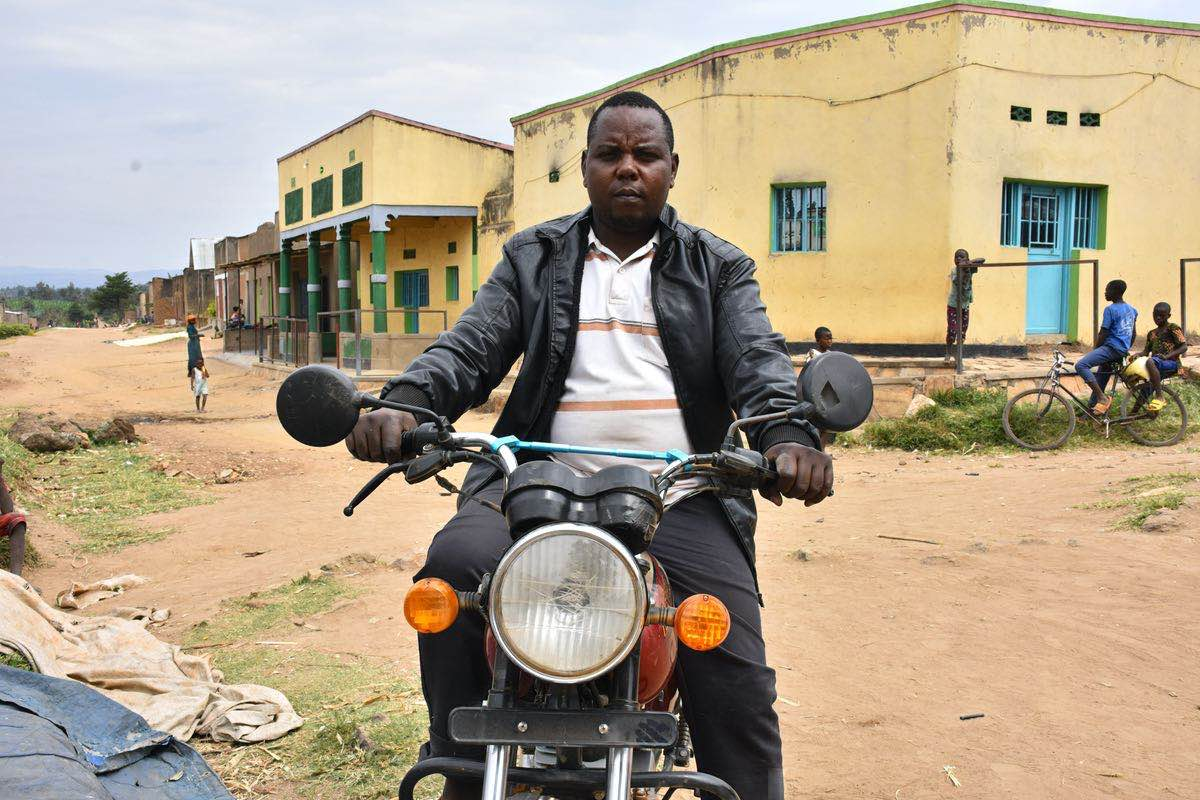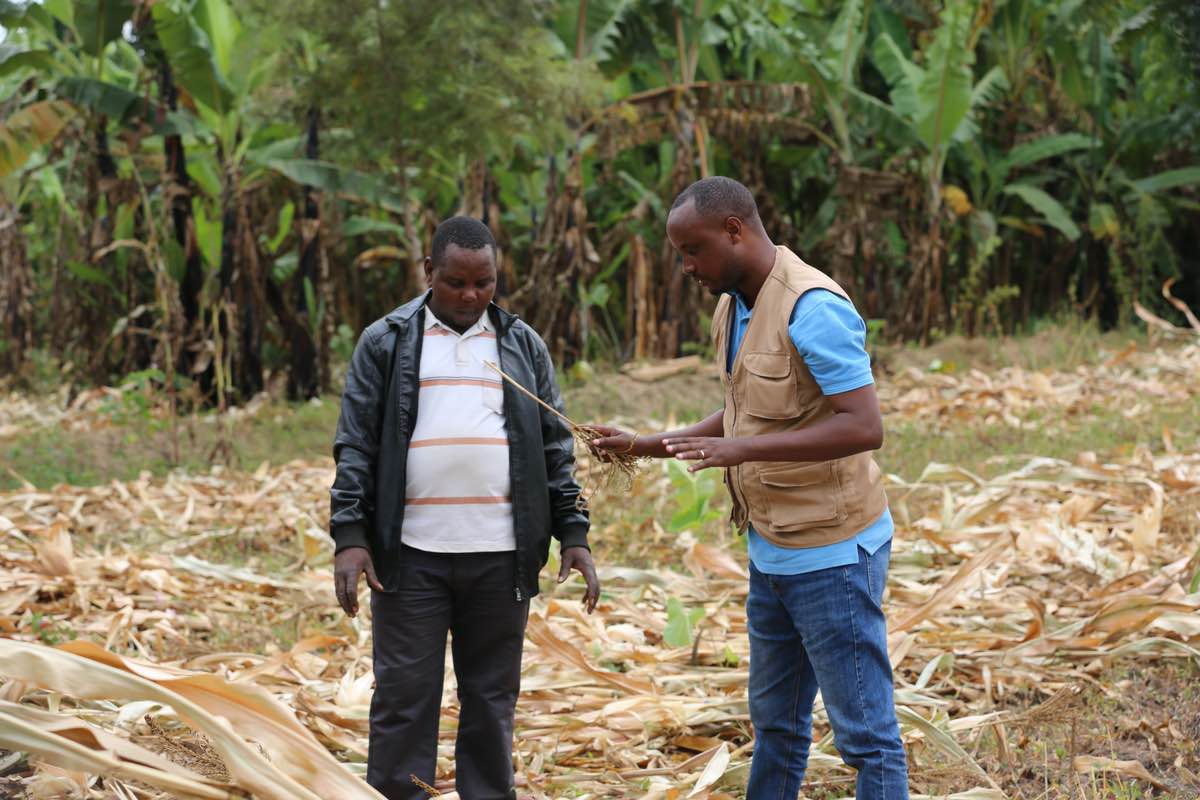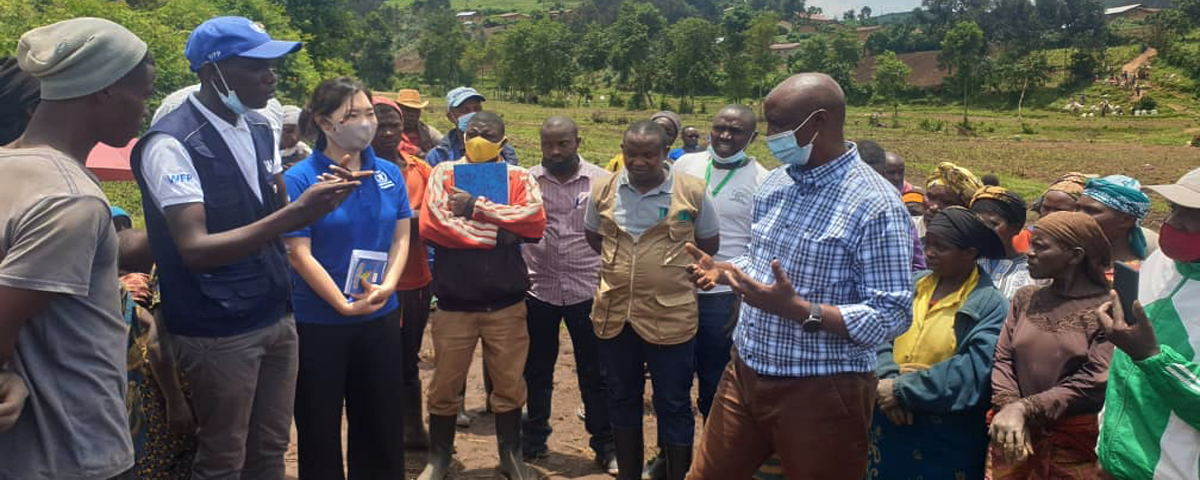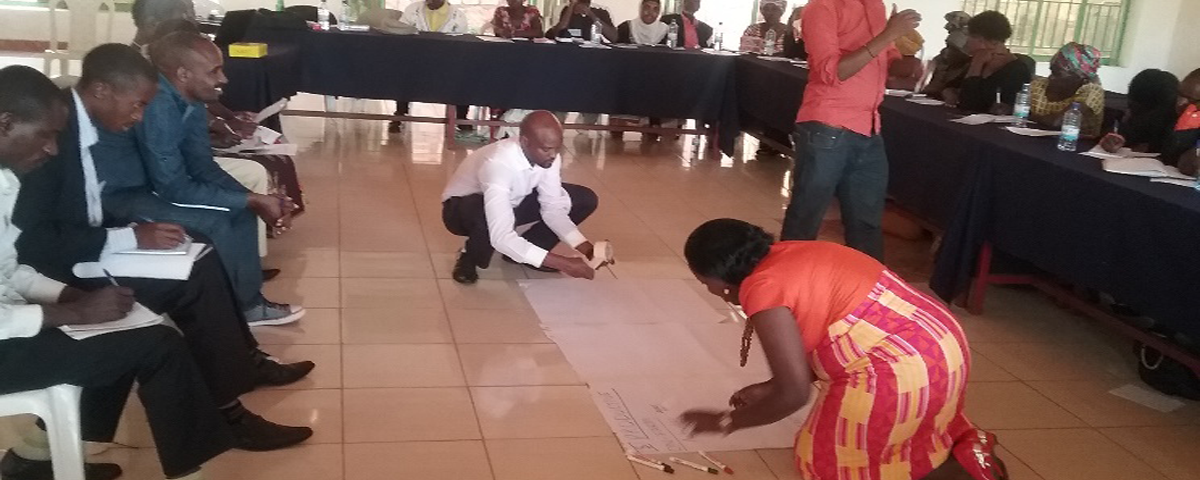Thaddee Nshimiyimana, a resident of Kabeza village in Tabagwe sector, Nyagatare District enjoys motorcycle rides as his new mode of transport in his leisure time as well as work related activities.
Nshimiyimana, 35, used to move on foot around the village or use a bicycle while transporting his agricultural produce, but this gave him more hard work especially climbing hills because it would leave him exhausted to do the next day’s work.

But his fate was to change when he learned and adopted good agriculture practices, productivity increased, saved and bought a motorbike.
The father of three joined CODEMATA, a local farmer organization to enjoy the benefits of working with maize farmers in Tabagwe. But he continued cultivating a mixture of crops like maize, beans, sorghum and others using local varieties and without applying any fertilizers. Production remained low harvesting only 1 to 1.2 tons of maize per hectare.
However, the increase in productivity started getting noticed at the cooperative in 2016 when CODEMATA joined Farm to Market Alliance (FtMA), a platform that supports smallholder farmers transition to commercial agriculture by providing them with adequate information, investment and support from seed to market.
Nshimiyimana remained unmoved, sticking to intercropping for almost two years (2017 - 2018), yet he was receiving all the trainings on Good Agricultural Practices (GAPs) and Post-Harvest Handling and Storage (PHHS) from Rwanda Development Organization (RDO) as one of the implementers of FtMA.
After the trainings, WFP in collaboration with RDO through FtMA organized a study visit for farmers to Agri-show at Mulindi in Kigali. This was a wake-up call for Nshimiyimana, who was able to see the exhibition of different agriculture produce and hear experiences of other farmers.
He started putting into practice the skills learnt like crop rotation, use of improved seeds and application of both mineral and organic fertilizers. The results were immediate and enormous harvesting four (4) tons per hectare in Season 2019A.
As the cooperative kept signing forward delivery contracts with big buyers like RGCC and AIF under FtMA platform, production also increased as well as good prices that resulted into high incomes for farmers.
For Nshimiyimana, productivity has kept on growing to six (tons) per hectare and wants it further raised to at least 8 tons. He emphasizes that the skills, technical support and advice from RDO helps him ensure production keeps increasing.
“Initially, I was hesitant to adopt new agriculture practices because I thought that intercropping would give me more production from different crops,” he notes. The trainings enlightened me on different practices as well as the cost of production.

Today, Nshimiyimana practices book keeping to determine the cost of production per season. In season 2023A, he invested Rwf.550,000 by using GAPs and was able to earn Rwf.3,840,000.
The new approach brought by FtMA platform changed Nshimiyimana’s life style, he bought two motorcycles at three million. He uses one for his personal transport in his agricultural activities and the other works as taxi-moto.
He has also bought more land to expand his farming activities and now has four hectares. He added one hectare at four million and leases three more hectares.
“I have been able to achieve all these with income from my agricultural activities without any bank credit,” he explains. Adding that life at home has also improved, he got connected to electricity, has television set, modern household appliances and pays school fees for two children in a private school.
“My next target is to buy a car,” Nshimiyimana underscores.
Nshimiyimana is grateful to WFP though FtMA project and RDO for the continuous support, he wishes that the programme can continue to equip more farmers with new techniques to increase yields both in quantity and quality.



